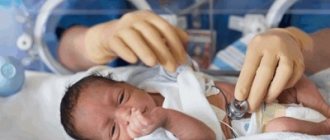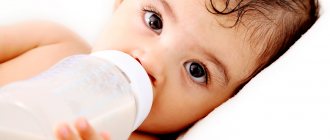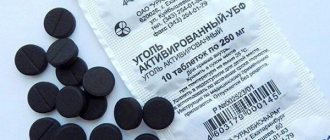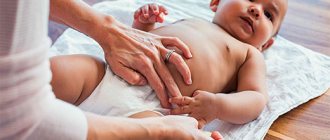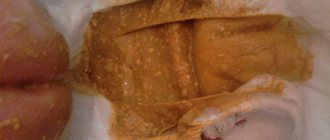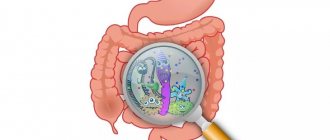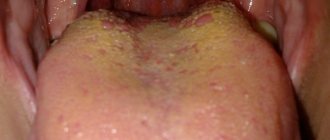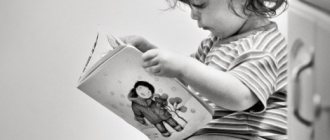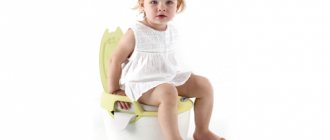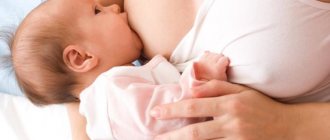A baby is an inexhaustible source of happiness and no less a cause for concern. Since the child cannot tell his mother that he is in pain, it is necessary to carefully monitor the condition of the child’s body in order to prevent diseases. One of the most difficult diseases in terms of early diagnosis is diarrhea in newborns.
Usually, babies defecate loose stools for up to six months, so it is difficult for young parents to determine if the baby is healthy or if there is diarrhea.
Causes of diarrhea in newborns
Frequent loose stools in a formula-fed newborn can have several different causes. Among them:
- incorrectly selected formula for feeding;
- rotavirus infection;
- staphylococcus;
- dysbacteriosis;
- intestinal infection;
- lactose intolerance;
- untimely introduction of complementary foods;
- teething;
- change of mixture;
- medicines;
- food poisoning;
- helminths;
- celiac disease;
- problems with the development of internal organs.
In a newborn, the digestive system is not fully formed, continues to form, and functions poorly. Therefore, it is so important to monitor the appearance of his stool from the first days, so as not to miss the onset of the disease or to adjust his diet in time. Diarrhea in a newborn with artificial feeding must be distinguished from normal feces. The feces of such children are thicker than those of those who drink mother's milk, it is homogeneous, and may contain underdigested white lumps of the mixture.
Diarrhea has a thinner consistency than normal stool, often yellow, sometimes green, with an unpleasant, sour odor. The frequency of stool increases. Feces may be streaked with blood, mucus, foam, or darker specks. All these signs are a reason to immediately contact your pediatrician.
Those immunomodulators and invaluable components of mother's milk that a breastfed newborn receives are absent in adapted formulas. Therefore, the immunity of a bottle-fed baby is much weaker. In this regard, there is a greater likelihood of infectious diarrhea caused by bacteria. The baby's body is very vulnerable to all kinds of infections during teething. At this time, children drag any objects into their mouths, not always clean ones, and increased salivation increases intestinal motility.
Another feeding mistake that can cause diarrhea in a formula-fed newborn is untimely or incorrectly chosen complementary foods. Once it is excluded, the baby’s diarrhea goes away in 2-3 days.
The appearance of diarrhea in a formula-fed baby may indicate problems with the functioning of the endocrine system or congenital diseases of the internal organs. Volvulus, appendicitis, and peritonitis can also cause diarrhea in a child.
Celiac disease, or celiac enteropathy, is a disease manifested as an allergic reaction to foods containing gluten. Causes loose stools, bloating, and “boiling” in the stomach of a bottle-fed newborn. Treatment consists of following a diet that excludes grains - wheat, rye, oats.
Defecation rate for up to one year
The number of bowel movements per day for children under 12 months directly depends on age and type of diet. To date, there are no certain indicators of the norm, according to which one can understand whether there are disturbances in the process of bowel movement or not.
In the first days or first month of life, the baby produces original feces, called meconium. It is presented in the form of digested intestinal cells, bile, amniotic fluid, water and mucus. Meconium is black or dark green in color and appears as a sticky, viscous discharge. In infants, the amount of feces per day varies from 1 to 3 times.
A little later, the baby’s stool will change, taking into account what type of feeding the mother chooses: artificial, mixed, breastfeeding.
If breastfeeding is preferred, the baby's stool is:
- slightly sour aroma of overcooked milk
- yellow-brown or yellow stool
- mushy liquid consistency
- The number of bowel movements for each newborn baby is individual.
The frequency of stool is high in infants in the first days of life and reaches 5-8 times per day. The older the child gets, the fewer bowel movements he has - up to 1-3 times a day.
With a mixed or artificial feeding option, the stool is presented in the form of a thick consistency, dark and almost brown in color with an unpleasant odor, and the stool occurs once a day, and if this does not happen, then the baby is constipated.
It is important to understand that when complementary foods are introduced to a baby, the feces change over time and will increasingly resemble the feces of an adult. They will have a dense, brownish consistency and will have a characteristic odor.
Why is diarrhea dangerous in babies?
First of all, diarrhea causes rapid and severe dehydration in children under one year of age. This is deadly. Causes for concern may be:
- sunken fontanel;
- lethargy;
- drowsiness;
- dry skin;
- chapped lips;
- moodiness;
- refusal to eat and drink.
Self-medication of the baby is unacceptable! Apart from drinking plenty of fluids, if diarrhea is detected, you should not give your baby anything. You need to call a doctor immediately. If diarrhea is accompanied by high fever, only an antipyretic drug is allowed. When the pediatrician arrives, you should leave a diaper with feces to facilitate diagnosis.
When a doctor's help is needed
Urgent consultation with a doctor is necessary if a newborn baby develops any of the following symptoms:
- urine volume decreased;
- urine has become dark in color;
- the baby's baby is sunk;
- the baby's skin has become dry;
- there is dryness of the tongue and oral mucosa;
- the child refuses the next meal;
- diarrhea persists for two days;
- vomiting developed.
All of these symptoms can be signs of dehydration, which can be dangerous for the baby. When they appear, the baby needs to be shown to the doctor, and he will tell you how to properly treat the baby.
How to relieve your baby's condition during diarrhea
Based on the symptoms, the pediatrician makes a diagnosis and prescribes treatment. Parents are obliged at this time to take measures to alleviate the baby’s suffering, for this they should:
- feed the baby with a mixture diluted in half;
- cancel any complementary foods if they were introduced;
- ensure the correct drinking regimen, drink frequently, including Regidron or electrolyte solutions - several teaspoons every 10-15 minutes;
- do not change the mixture unnecessarily or consult a doctor before changing it.
The main rule for parents: if a bottle-fed baby has loose stools, this is a reason to consult a doctor. It is unacceptable to treat this symptom yourself, especially with folk remedies, without consulting a specialist! You cannot waste time and allow dehydration and serious illness to develop.
After each bowel movement, the child is carefully washed, blotted dry and lubricated around the anus with baby cream or oil so that there is no irritation that causes pain and anxiety. You can relieve colic and tummy pain by gently stroking it and laying the baby on your stomach.
Folk remedies
- Your baby will definitely love it if you treat him with delicious blueberry or bird cherry jelly as a cure for diarrhea. Both of these berries have a powerful strengthening effect, and therefore drinks made from them are an excellent remedy. You can also cook compote, but jelly is more effective for loose stools due to the fact that during its preparation starch is added, which also strengthens well.
- If you don’t have time to cook, starch will help you again. To prepare the medicine, simply dissolve a spoonful in half a glass of warm water. The drink, of course, does not taste as pleasant as jelly, and not all children will drink it with pleasure. To solve the problem, you can add sugar or jam to the drink - then the little patient will be treated with great pleasure.
- An excellent folk remedy for diarrhea is a decoction made from rice cereal. It is best to use short-grain, unpolished rice - it has much more beneficial properties. This folk remedy can also be given to infants - it is absolutely safe. The main thing is not to overdo it, otherwise the opposite situation may arise - constipation.
Green stool in a newborn
Original feces - meconium - are green. In this way, in the first days after birth, the child’s body is freed from the remains of amniotic fluid and epithelium. In the future, green stools, especially watery, frequent ones, should cause concern and become a reason to get tested. Green diarrhea in a formula-fed baby can cause lactose intolerance. In this case, milk is contraindicated for the child; intoxication of the body may occur.
Green stools, for example, with mucus, do not always mean a serious illness. This may be a signal that the digestive system is not fully formed; there are not enough enzymes to process untimely complementary foods. The green color of the stool may also indicate an increased iron content in the milk formula.
Green, foul-smelling diarrhea interspersed with blood, black spots, foam, accompanied by vomiting and high fever, may mean a rotavirus or intestinal infection, a disease of the internal organs, or internal bleeding. In order not to waste time guessing, you need to get your stool tested as quickly as possible.
Treatment
What to do if a baby has diarrhea? Before starting therapy, it is necessary to determine the causes of loose stools. Treatment should not only be comprehensive, but also aimed at eliminating the etiological factor. Only a specialist can tell you how to treat diarrhea. Dr. Komarovsky is confident that physiologically loose stools are not a pathology and therefore do not require therapy. Treatment of diarrhea should begin with drinking plenty of fluids, Evgeniy Olegovich Komarovsky is sure.
It is necessary to treat diarrhea in a newborn only under the supervision of specialists. A child under one year of age is prescribed:
- Rehydrants. These include the following solutions: Oralit, Pedilight, Hydrovit and others. These drugs are suitable for combating diarrhea and dehydration. They give the medicine no less than 100 ml of the product per kilogram of the baby’s weight. The product should be given after each bowel movement. You can prepare analogues of rehydrants at home. To one liter of water add three teaspoons of sugar and half a teaspoon of salt and mix. The solution can also be given when vomiting.
- Sorbents. Most often, doctors prescribe Smecta and Polysorb.
- Diet. During breastfeeding, the diet must be followed by the nursing mother. If the baby has already tried “food from the common pot,” then it is necessary to exclude all fruits, juices, raw vegetables, and dairy products. Instead of cookies, give a cracker, replace fried meat with boiled meat or fish.
Under no circumstances should you stop therapy on your own. It is not enough to just stop the diarrhea; the cause must be identified and treated.
Folk remedies
Is it possible to treat a child with folk remedies? Such treatment is carried out only with the consent of a specialist. There are many tools that help solve this problem. But we must understand that traditional medicine should in no case replace medication. What remedies will help relieve diarrhea and the irritation and diaper rash caused by it.
- Linden decoction. Dried flowers are brewed in boiling water and infused. Then they give it to the baby. Diarrhea may go away within a day.
- Aspen buds. 1 tablespoon of green aspen buds is brewed over low heat for half an hour. Next, the broth is filtered and given to children three times a day, a teaspoon.
- Mint decoction. It is brewed in the same way. Give before feeding in the morning and in the evening.
- Rice water. A decoction of round rice is boiled, drained and evaporated. Before this, it is diluted with water in a ratio of 1 to 3.
- Rose hip decoction.
Can small children take potassium permanganate? There is no specific data that would prohibit this remedy. The product is dissolved in one liter of water, no more than two crystals. Take before bedtime.
Symptoms
In infants who empty their stomach after any feeding, the determining factor for diarrhea is not the frequency of stool, but the following signs:
- The stool has a bad smell.
- Green or orange stool.
- The stool is liquid, foamy or with a considerable amount of mucus.
- The baby experiences pain in the abdomen, which is signaled by incessant crying and tucking in the legs.
- The tummy becomes denser and becomes larger in volume.
- Very high temperature.
- Diarrhea with streaks of blood (normally there should be no blood in the child’s stool).
Prevention
Preventive methods are:
- maintaining hygiene not only for the baby, but also for both parents;
- rational and balanced nutrition of the mother;
- quality food;
- timely detection and treatment of diseases;
- strengthening the immune system.
All this will make it possible to minimize the risk of diarrhea in infants.
Diarrhea is a rather unpleasant disease, especially if it occurs in children. You should not self-medicate and try to stop it with all kinds of drugs. Each of them has its own indications and contraindications that must be taken into account. Since the health of a little person is more important than the quick effect of therapy.
